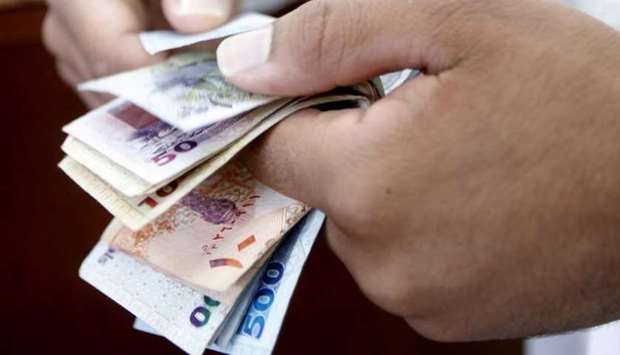Elevated international oil and gas prices, widening current-account surplus, and rebounding financing and liquidity metrics are favourable to Qatari riyal, the Economist Intelligence Unit (EIU) said in its latest update.
EIU noted the riyal's peg to the US dollar will continue to be backed by “healthy” foreign reserves and QIA assets. The researcher assigned currency risk rating at ‘BBB.'
Qatar’s ample foreign reserves and sovereign wealth fund assets have helped the country service its ‘high” debt obligations, EIU said.
The country’s macroeconomic indicators continue to improve in 2022. The fiscal account surplus will widen this year, owing to high global hydrocarbons prices, easing public debt pressures, it said.
According to EIU, the net negative foreign asset position of Qatar’s banks (banking sector risk is BB-rated) is large but fell in the first quarter (Q1) of 2022.
The sector is well regulated, and although net external liabilities pose risks, strong prudential indicators insulate banks from a deterioration in asset quality arising from the longer-term impact of the 2020 recession. The non performing loan ratio is low, and profitability levels are moderate.
Economic structure risk is also BB-rated, EIU said. Qatar's over-reliance on hydrocarbons exports remains a vulnerability, exposing the country to global energy price movements, EIU said.
The Qatar National Vision 2030 diversification programme will shape policy. Qatar's large stock of public debt “weighs” on the outlook, but a sound financial system is “supportive”.
In an earlier update, EIU had noted Qatar's overall business environment score has improved from 6.56 for the historical period (2016-2020) to 7.35 for the forecast period (2021-2025). This has helped Qatar's global ranking to improve by eight places from 36th to 28th, although its regional ranking remains steady at third.
The largest improvements, in terms of scores, are in the categories of infrastructure and market opportunities, it said.
“Qatar's fairly open foreign investment regime, open trading relationships with regional partners and sophisticated capital markets will remain strong aspects of its business environment. The main shortcomings are in policy towards private enterprise and competition and in access to financing for small and medium-sized enterprises,” EIU noted.
EIU noted the riyal's peg to the US dollar will continue to be backed by “healthy” foreign reserves and QIA assets. The researcher assigned currency risk rating at ‘BBB.'
Qatar’s ample foreign reserves and sovereign wealth fund assets have helped the country service its ‘high” debt obligations, EIU said.
The country’s macroeconomic indicators continue to improve in 2022. The fiscal account surplus will widen this year, owing to high global hydrocarbons prices, easing public debt pressures, it said.
According to EIU, the net negative foreign asset position of Qatar’s banks (banking sector risk is BB-rated) is large but fell in the first quarter (Q1) of 2022.
The sector is well regulated, and although net external liabilities pose risks, strong prudential indicators insulate banks from a deterioration in asset quality arising from the longer-term impact of the 2020 recession. The non performing loan ratio is low, and profitability levels are moderate.
Economic structure risk is also BB-rated, EIU said. Qatar's over-reliance on hydrocarbons exports remains a vulnerability, exposing the country to global energy price movements, EIU said.
The Qatar National Vision 2030 diversification programme will shape policy. Qatar's large stock of public debt “weighs” on the outlook, but a sound financial system is “supportive”.
In an earlier update, EIU had noted Qatar's overall business environment score has improved from 6.56 for the historical period (2016-2020) to 7.35 for the forecast period (2021-2025). This has helped Qatar's global ranking to improve by eight places from 36th to 28th, although its regional ranking remains steady at third.
The largest improvements, in terms of scores, are in the categories of infrastructure and market opportunities, it said.
“Qatar's fairly open foreign investment regime, open trading relationships with regional partners and sophisticated capital markets will remain strong aspects of its business environment. The main shortcomings are in policy towards private enterprise and competition and in access to financing for small and medium-sized enterprises,” EIU noted.


